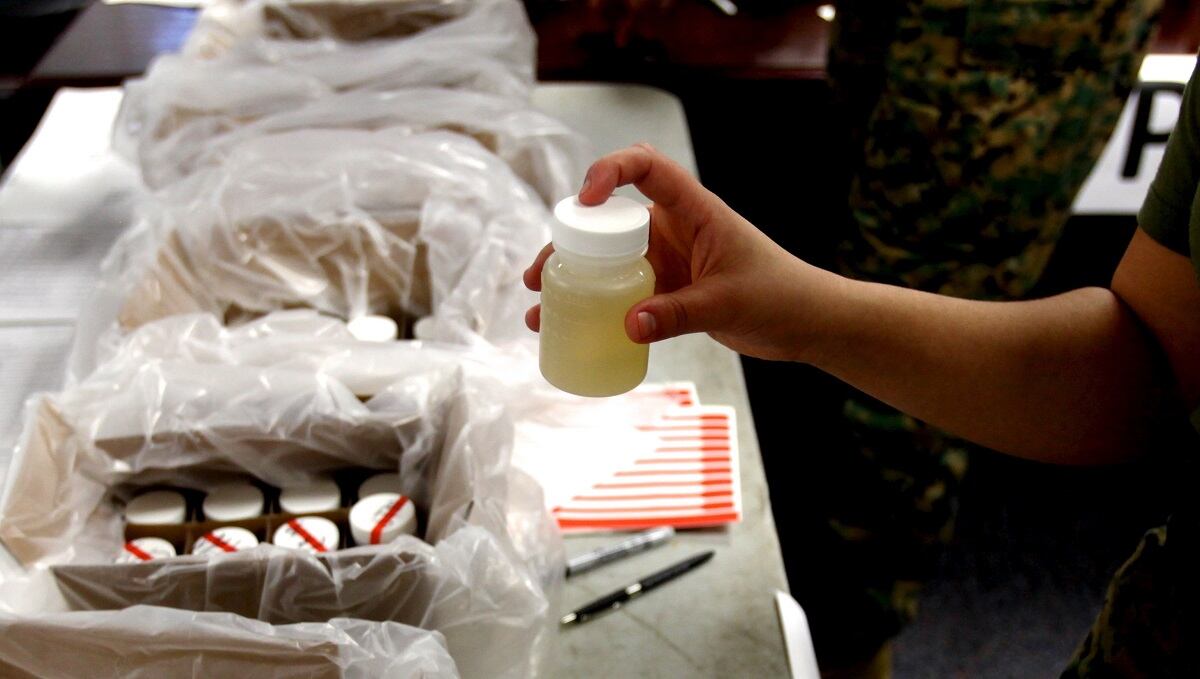A Navy audit that concluded in 2017 found the Marine Corps was not adequately reporting positive drug test results of Marines who occupied job fields that required a security clearance to access classified information.
The audit looked at Defense Manpower Data Center drug test sample data from fiscal year 2013 and found the Marine Corps did not report nearly 66 percent of positive drug tests to the Department of Defense Consolidated Adjudications Facility, or DoD CAF.
DoD CAF is the entity responsible for determining eligibility for access to classified information for non-intelligence agency DoD personnel. The audit was obtained by Marine Corps Times through a Freedom of Information Act request.
“Headquarters Marine Corps Plans, Policies and Operations [PP&O] is aware of issues with inadequate reporting of positive incidents of drug testing and are addressing them with commanders and security managers,” Capt. Karoline Foote, a Marine spokeswoman, told Marine Corps Times in an emailed statement.
“We rely on unit leadership and security managers to meet this obligation and are committed to providing oversight and education to help them fulfill this requirement.”
The audit looked at a sample of 110 Marines with 157 confirmed drug test incidents out of a total sample size of 1,557 Marines in fiscal year 2013 who had positive drug tests.
Out of that pool, the audit found that various Marine Corps commands did not adequately report 104 of 157 confirmed positive drug test incidents, or about 66 percent. Those 104 positive drug tests involved 80 Marines.
“We were unable to determine if another 14 of 157 incidents (9 percent) were reported as required,” the report states.
The report further noted that the sample of 110 Marines occupied 85 different job fields, and 73 of those had a prerequisite for a security clearance.
“Because confirmed positive drug test incidents were not reported to DoD CAF, DoD CAF was not able to adjudicate the information,” the audit reads.
“As a result, Marines who tested positive for illegal drugs could have obtained/retained or could now have clearance eligibility necessary to serve in positions and have access to classified information,” the report states.
The Corps is working to ensure reports of positive drug tests that have not made their way to DoD CAF are appropriately reported.
“Additionally, as part of the Automated Continuous Evaluation Program, HQMC [headquarters Marine Corps] receives weekly reports from the newly established Defense Vetting Directorate (DVD) that includes positive urinalysis reports that have not been reported to the DoDCAF. HQMC contacts the command to ensure this is done and follows up as necessary,” Foote explained.
Furthermore, the Corps says that all positive drug test results are being reported to unit commanders via the Internet Forensic Toxicology Drug Testing Laboratory portal. Individual commanders then can use that information for legal and administrative action.
Marines are usually separated from the Corps following reports or positive drug tests.
“The commander via his or her security manager is responsible for reporting the positive drug test results to DoD CAF,” Foote said. “This item is inspected in annual reviews at the command level. “
Moreover PP&O reviews this issue every three years, according to Foote.
Shawn Snow is the senior reporter for Marine Corps Times and a Marine Corps veteran.




